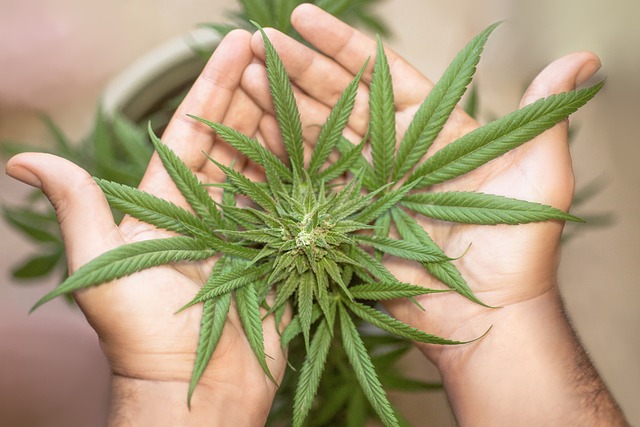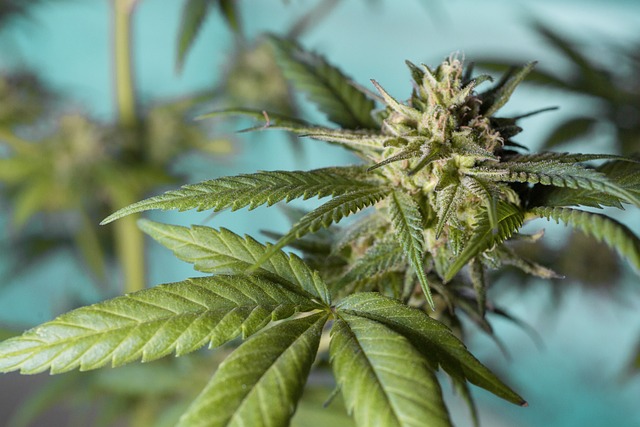The emergence of THCA (tetrahydrocannabinolic acid), a non-psychoactive cannabinoid with potential therapeutic benefits and legal status in many European Union countries, is shaping the EU's hemp market. With regulations allowing its cultivation and sale when THC levels are below 0.2% by dry weight, THCA is becoming increasingly popular for its anti-inflammatory, analgesic, and neuroprotective properties, offering a potential alternative to traditional medications. The EU's varying approaches to cannabis regulation, including decriminalization and medical use, are creating a favorable environment for the growth of THCA products. However, it's important to navigate the patchwork of EU regulations carefully, as member states like Germany and Italy have different policies compared to countries like the UK and France. THCA's legal status in EU countries is a testament to the expanding acceptance of hemp-derived products within diverse legal structures, necessitating up-to-date knowledge of local laws for both businesses and consumers. As research continues, THCA's potential health benefits are gaining attention, making it a sought-after ingredient in wellness products across the EU, with implications for pain management, nausea relief, and appetite stimulation, particularly in cancer care.
Exploring the emergence of THCA flower within European Union markets, this article delves into the cannabinoid’s legal status across various EU nations. With a focus on understanding its chemical properties, potential health benefits, and the nuances that differentiate it from other cannabinoids, we aim to clarify the role of THCA in the evolving cannabis landscape. As THCA gains traction for its therapeutic and recreational use, it is crucial to navigate both the benefits and the side effects associated with its consumption. This piece examines the recommended methods of use, dosage considerations, and safety practices to ensure responsible engagement with THCA flower. Additionally, we will explore how this compound interacts with the endocannabinoid system, its impact on health, and the regulatory frameworks that govern its quality and safety in Europe. Join us as we uncover the truth about THCA’s legality and use within EU countries, and what it means for consumers seeking alternative wellness options.
- THCA Flower: An Overview of Its Emergence in EU Markets
- The Legal Landscape of THCA in EU Countries
- Chemical Composition and Potential Effects of THCA
- Benefits Claimed for THCA Consumption
THCA Flower: An Overview of Its Emergence in EU Markets

Delta-9 tetrahydrocannabinolic acid (THCA) flower, a non-psychoactive cannabinoid found in the Cannabis sativa plant, has been gaining traction in EU markets due to its potential therapeutic properties. As regulations evolve, EU countries are increasingly recognizing the legal status of THCA-rich hemp products. Unlike its psychoactive counterpart, delta-9 THC, THCA is legal in many parts of the European Union under the condition that it contains less than 0.2% of delta-9 THC by dry weight. This distinction has paved the way for the emergence of THCA flower as a popular wellness product, with consumers and producers alike exploring its benefits within the scope of EU legalities.
The EU’s approach to cannabis regulation varies by country, but a significant shift towards decriminalization and medical use has created a favorable environment for the cultivation and sale of THCA flower. As a result, EU markets are witnessing an influx of products derived from hemp strains specifically bred to be rich in THCA. These products are marketed for their potential anti-inflammatory, analgesic, and neuroprotective effects, offering an alternative to traditional medications for some individuals. The emergence of THCA flower in EU markets signifies a new frontier in the cannabinoid landscape, reflecting a growing acceptance of hemp-derived products within the legal framework established by each member state.
The Legal Landscape of THCA in EU Countries

In recent years, the legal landscape surrounding tetrahydrocannabinolic acid (THCA) has evolved across various European Union countries. THCA, which is non-psychoactive and found in raw cannabis plants, has garnered attention for its potential therapeutic benefits. The EU’s policies towards THCA are not uniform; they vary by member state, reflecting the decentralized nature of EU law where individual nations hold sovereignty over their domestic drug regulations. As of the current knowledge cutoff, some EU countries like Germany and Italy have more lenient stances on cannabis, including THCA, for medical and scientific purposes. These nations have established frameworks that allow for the prescription and research of THCA-containing products. In contrast, others like the UK and France have stricter regulations, categorizing THCA under controlled substances lists due to its relationship with THC, a psychoactive compound. This divergence in legal approaches necessitates careful navigation for entities dealing with THCA within the EU. It’s imperative for stakeholders interested in THCA to stay abreast of the evolving legislation and specific regulations of each country they operate in or intend to enter. The dynamic nature of these laws underscores the importance of consulting legal experts familiar with the nuances of cannabis regulation in the EU.
Chemical Composition and Potential Effects of THCA

Delta-9-tetrahydrocannabinolic acid (THCA) is a naturally occurring cannabinoid found in hemp and cannabis plants, representing one of the most prominent compounds alongside CBD and THC. Unlike its decarboxylated form, THC, THCA is non-psychoactive, which means it does not induce the “high” commonly associated with cannabis use. As a result, THCA is often explored in products that are marketed for wellness purposes within legal frameworks, such as those established in various EU countries where the legal status of hemp-derived products allows for their inclusion in dietary supplements and topicals.
The chemical composition of THCA includes a structure with an additional acidic carboxyl group (-COOH) at the end of its carbon chain, which differentiates it from THC. This difference is pivotal as it affects THCA’s interactions with the body’s endocannabinoid system. Preliminary research suggests that THCA may possess anti-inflammatory and neuroprotective properties, potentially beneficial for conditions like arthritis and certain neurological disorders. Moreover, THCA is being studied for its potential in supporting the health of the cardiovascular and immune systems. As with any dietary supplement or wellness product, individuals are advised to consult healthcare professionals before incorporating THCA into their regimen, especially considering varying regulations across EU countries regarding cannabinoid consumption.
Benefits Claimed for THCA Consumption

Tetrahydrocannabinolic acid (THCA) is one of the major cannabinoids found in the Cannabis sativa plant and is the precursor to THC, the psychoactive compound commonly associated with cannabis use. Despite THCA being legal in many EU countries, it’s important to note the nuances in legislation across different member states. Consumers are increasingly exploring the potential benefits of THCA, which include a range of therapeutic properties. Preliminary research suggests that THCA may offer anti-inflammatory and neuroprotective effects, making it a subject of interest for those seeking alternatives to conventional medications for pain and neurological disorders. Additionally, THCA is being studied for its potential role in reducing nausea and stimulating appetite, which could be beneficial for individuals undergoing chemotherapy or suffering from eating disorders. Unlike its psychoactive counterpart, THCA does not induce a high, allowing users to potentially reap the therapeutic benefits without the associated mind-altering effects. As such, it’s being integrated into various wellness products, including oils, tinctures, and capsules, catering to a broadening demographic of health-conscious consumers within the legal framework established in EU countries.
THCA flower, rich in therapeutic potential, has emerged as a significant player within the EU’s burgeoning market. As this article has explored, the legal status of THCA varies across EU countries, with regulations reflecting a dynamic and evolving landscape. Its chemical composition, distinct from its psychoactive counterpart THC, offers a range of benefits that consumers are increasingly seeking out for wellness purposes. While more research is needed to fully understand its effects, the initial findings suggest promising applications. It’s clear that THCA flower holds considerable interest and has carved out a niche in the health and wellness sphere within EU jurisdictions. As such, stakeholders from producers to policymakers must continue to engage with the evidence to ensure a responsible and beneficial market for consumers seeking alternatives to traditional pharmaceuticals.
